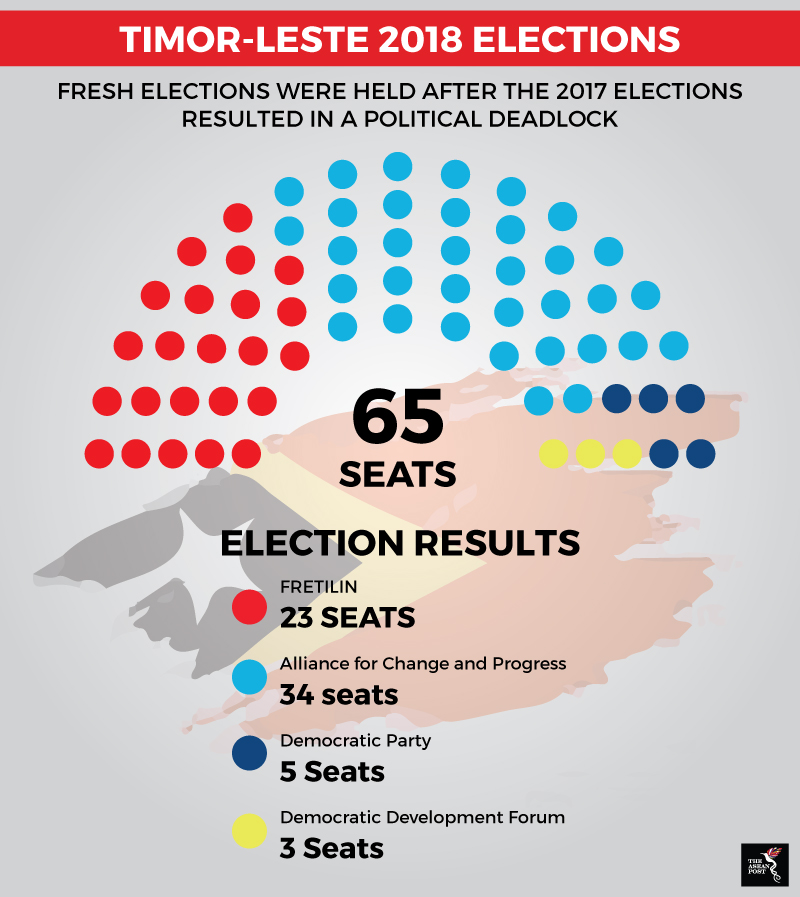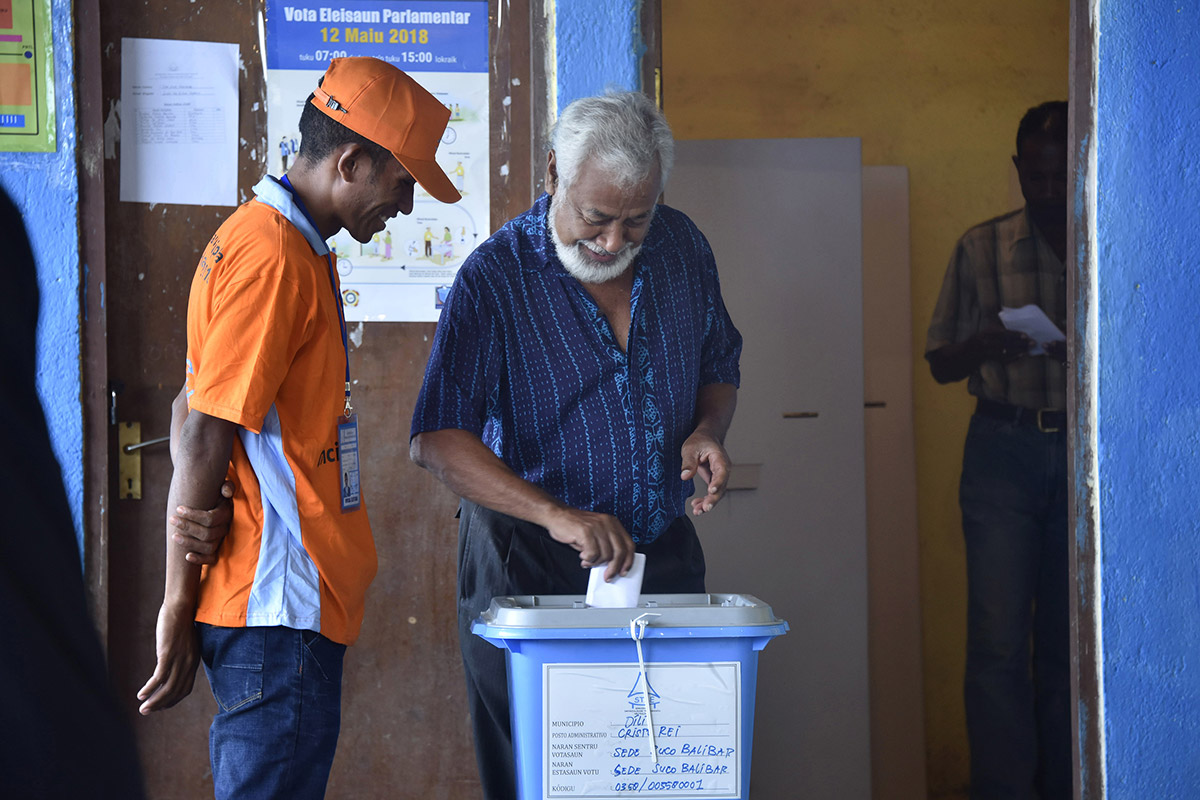On 12 May this year, Timor-Leste held parliamentary elections for the second time in under a year. The elections saw the Alliance for Change and Progress (AMP), a coalition of three opposition parties win an absolute majority of 34 out of 65 seats in parliament.
The elections were preceded by a political deadlock which lasted nearly a year. In the parliamentary elections in July last year, leftist party, FRETILIN narrowly emerged as the largest party in parliament. The party outnumbered its biggest rival National Congress for Timorese Reconstruction (CNRT), winning 23 seats as opposed to CNRT’s 22 allowing FRETILIN to form a minority government. However, since the party does not hold a majority in the national parliament, its efforts to introduce policies and a new budget were stopped by a hostile opposition.
As a result, the country reached a political impasse with the FRETILIN led government unable to carry out any of its policy programmes which led to the May elections being held.
Timor-Leste’s latest elections shows that the country has matured quickly. The country received independence from Indonesia less than 20 years ago and was colonized by the Portuguese for centuries prior to that. Ever since its independence from Indonesia in 1999, Timor-Leste has been marred by violence and instability. But the last two elections revealed that the country has embraced parliamentary democracy and is on the path to stability. Last year’s elections were the first to be held since United Nations (UN) peacekeepers left the country and the election process was hailed as “remarkable” by observers.
 Source: National Elections Commission
Source: National Elections Commission
What now?
The coalition that won the elections in May comprises of three parties, the CNRT, the People’s Liberation Party (PLP) and Kmanek Haburas Unidade Nasional Timor Oan (KHUNTO). Moving forward, there are a host of challenges facing the current ruling government.
First of all, the three parties in the coalition will have to iron out their differences. The AMP coalition isn’t bound together by a similarity in ideology but by a desire to form the government.
The differences can be seen in the two biggest parties of the coalition, the PLP and CNRT. Fundamentally, both parties have opposing views when it comes to state spending. The PLP has in the past been vocal about excessive government spending on unnecessary projects the last time the CNRT was in power.
A stable government is essential, especially when it is in charge of the country’s sovereign wealth fund. In 2005, the country established a sovereign wealth fund called the Timor-Leste Petroleum Fund where the surplus wealth from its oil and gas sector is deposited. Some economists have argued that the fund could deplete soon.
Another major challenge is ensuring steady growth for the nation. Timor-Leste is a small country with a population of 1.4 million people who are mostly poor. According to the World Bank, 20 percent of the population is unemployed and half the population is illiterate.
What needs to be done?
With the sovereign wealth fund depleting, the government there needs to look for new sources of revenue while also providing the necessary infrastructure for its citizens to flourish. Previous governments have been criticised for spending too much on “mega-projects” without focusing on important basic infrastructures such as schools, hospitals and even roads. The future of the country depends on the economic route the government wants to take, and the right one is the people-centric route.
The government also has to figure out a way to diversify its economy so that the country is not heavily dependent on oil revenues. Sure, Timor-Leste might have recently reached a historic agreement with Australia on their shared maritime boundary which could see an increase in petroleum revenue. However, the new pipeline proposed by Timor-Leste is still far from being developed. Furthermore, the country cannot rely on petroleum indefinitely. A diverse economy is essential to the success of this fledgling nation.
Winning an election is the easy part, the AMP is now faced with the difficult task of running the country.
